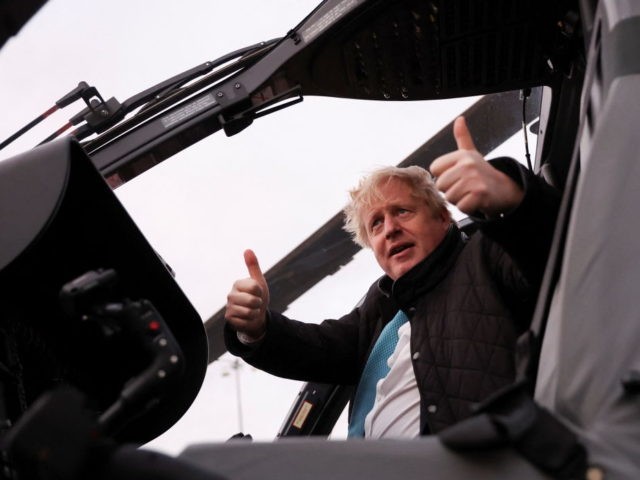While Boris has been accused of making ‘red meat’ conservative policy giveaways to buttress his waning popularity, he clearly is not wounded badly enough to consider scrapping a looming tax rise, insisting it is “absolutely vital” to increase taxes on working people.
The British government has spent “over £400 billion keeping the British economy going” during the coronavirus lockdowns it elected to impose on the nations and, as a consequence, the coming rise in payroll taxes on British workers must go ahead, the Prime Minister said Thursday.
Speaking during a trip to Wales, UK Prime Minister Boris Johnson was asked by a journalist from Sky News television whether he would be walking back the announced rise in direct taxes on workers, perhaps not an unreasonable question given how badly it is likely to play with Tory base voters. The Prime Minister has also seemed keen to make other so-called “red meat” giveaways in recent weeks to buy back support haemorrhaged to Labour after a series of ‘Partygate’ scandals that have rocked Westminster.
Despite polling showing the Tories taking a real hit after they announced tax rises in 2021 and the party now trailing the opposition Labour by ten points, the Prime Minister clearly isn’t feeling sufficiently threatened to give hard-pressed workers a break. Making first an emotional plea about money for the NHS, the Prime Minister finally got to the point — that shutting down the UK economy for coronavirus had cost the government £400 billion.
Boris Johnson said: “It is absolutely vital, I hope people understand… We had to spend over £400 billion keeping the British economy going during the lockdowns, we’ve got now to move forward, we’ve got to fix the COVID backlogs, we’ve got to sort out social care. I think that’s the right thing to do.”
Bizarrely, when facing the problems the UK economy was facing, the Prime Minister appeared to take a leaf out of U.S. President Joe Biden’s book when he claimed that actually the real problem was the economy was performing too well, and this was causing problems. He told his television audience that: “We’ve got record employment now, we’ve got record low young unemployment. The difficulty is, actually, this economy is going so well post-Covid that we’re short of hundreds of thousands of pairs of hands to do vital work.”
By subscribing, you agree to our terms of use & privacy policy. You will receive email marketing messages from Breitbart News Network to the email you provide. You may unsubscribe at any time.
Boris’s tax rises are not without critics in the Conservative Party. Treasury Select Committee chairman Mel Stride MP told the BBC on Thursday: “This is an opportunity now to not go ahead with the National Insurance rises in April, principally because of the cost of living pressures that there are. Secondly, it is an inflationary measure in itself and that would have knock-on consequences for the servicing cost of the national debt, so it would have a negative fiscal impact in that sense”.
Robert Jenrick MP has called on the government to at least delay the tax rise for a year. Nevertheless, The Guardian reports, a government spokesman has insisted the tax rise will go ahead.
National Insurance is one of two payroll taxes levied in the United Kingdom, alongside income tax. Although its name implies it pays towards a national insurance fund for use in the future, in practice the money is spent by the government immediately, meaning today’s taxpayers pay for today’s pensioners, rather than the money being invested. Having two separate income taxes — which effectively masks the true rate of income tax in the UK, some claim — has seen the tax criticised and it has been suggested it should be abolished or merged with the general income tax rate.
The proposed increase for April is 1.25 per cent, and is levied twice — once on employees pay packets, but it is also paid by employers as well. The increase represents a considerable real-term decrease in wealth for most people in work — according to BBC figures, someone earning an average wage of £30,000 would see the government take another £250 a year, while someone on a professional salary of £50,000 would lose another £500.
The rises will be difficult for the Conservatives at forthcoming elections, where promises to not increase taxes are one of the most potent weapons a Tory can deploy while meeting voters during campaigning. Speaking last year when the National Insurance raise was announced, Mr Johnson excused himself from the manifesto commitment to not raise taxes that pointing out, while the raise wasn’t expected, neither was Coronavirus.

COMMENTS
Please let us know if you're having issues with commenting.